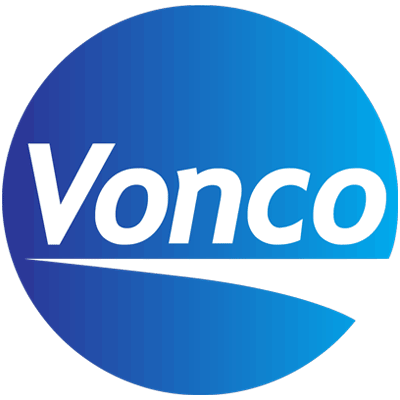Fresh off of two bioprocessing shows and Pack Expo, plus with the year winding down, Vonco’s Tom Ryder and Gary Link chat about the 2025 outlook for the healthcare and medical device manufacturing industry.
The sector continues to evolve at an unprecedented pace, driven by technological advances, changing patient expectations and demand, and the increasing importance of regulatory compliance. For medical device OEMs and contract manufacturers, this means adapting to new challenges, embracing innovation, and seizing opportunities to stay competitive in an ever-changing landscape.
Four areas of importance that Vonco is seeing on the horizon:
1. Technological Advancements
The integration of advanced technologies into medical device manufacturing will only accelerate in 2025. Artificial intelligence (AI), machine learning, and robotics are transforming how devices are designed, manufactured, and even used in medical procedures and therapies.
Additionally, robotic-assisted surgery and bioprocessing will likely see even more sophisticated systems emerge. These technologies enable greater precision and will open the door for growth within surgical instrument cover and fluid bag production for contract manufacturers.
2. Policy, Regulatory and Compliance Challenges
Regulatory compliance has always been a cornerstone of medical device manufacturing, and it will remain a focal point in 2025, as manufacturers face more complex regulatory landscapes. This will continue to play into product development, approval, post-market surveillance, and the strict requirements on medical device packaging (including return packaging).
Also, the world will have eyes on the U.S. as a new administration takes shape and policies are put into place that may impact the economy, including trade, tariff, and immigration policies.
3. Patient-Centric Design and Personalized Healthcare
Medical device manufacturers will continue to focus on creating innovative patient-centric solutions. The shift toward personalized healthcare, where treatments and devices are tailored to individual patient needs, will drive the demand for more customized and adaptive medical devices. This will drive the need for collaborative contract manufacturers that are nimble and able to be a trusted partner for design, development, and mid-volume production, as large OEMs no longer have the bandwidth and capacity to innovate internally for smaller projects. This will spill into the design of more custom flexible packaging solutions as well.
4. Sustainability and Supply Chain Innovation
Sustainability is a growing concern for all industries, and medical device manufacturing is no exception. As regulations tighten around environmental standards, manufacturers will be under increasing pressure to reduce their carbon footprint and improve the sustainability of their products and processes.
Expect to see more manufacturers turning to sustainable materials and more environmentally friendly packaging. Promising flexible packaging solutions gaining traction include post-consumer recycled (PCR) pouches, recycle-ready pouches, and eco-friendly foil alternatives. Single-use bio-compatible materials also will continue to play a vital role within biopharmaceutical and healthcare sectors.
Additionally, OEMs will continue to look for ways to reduce cost and improve their resilience with increased inventory transparency and near-shoring production to reduce reliance on global supply chains.
Opportunities and Challenges
The healthcare and medical device industry will always face a unique combination of opportunities and challenges. OEMs and contract manufacturers that successfully navigate these shifts will remain agile, innovative and well-positioned for long-term growth and success.
At Vonco Products, we specialize in comprehensive contract manufacturing solutions tailored to the unique needs of healthcare and medical device manufacturers. As a pioneer within the industry, our extensive experience allows us to provide custom turnkey services that make OEMs’ lives easier.

